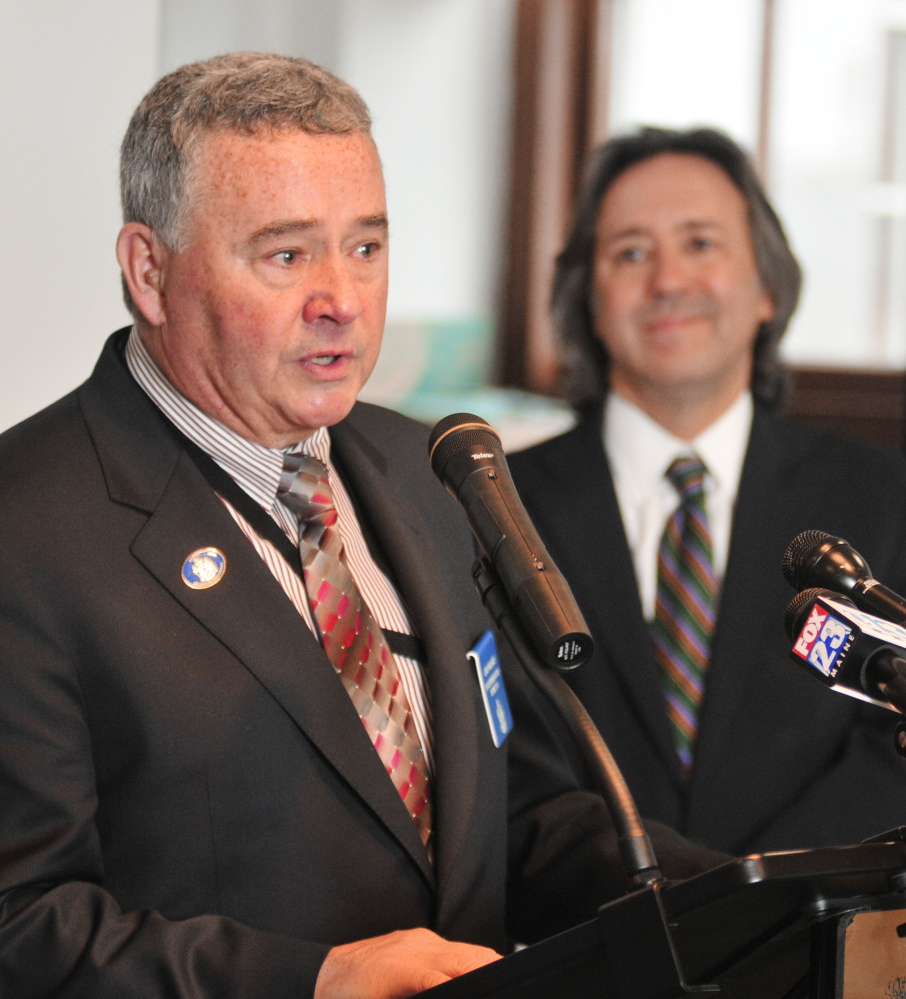AUGUSTA — Residents of central Maine’s arsenic hot spots argued for a bill aimed at increasing well-water testing before a legislative committee on Tuesday, but the proposal ran into opposition from testers who would face new taxes to help pay for it.
The bill, sponsored by Rep. Drew Gattine, D-Westbrook, would establish funds for education and for low-income residents to test well water and require that wells be tested when they are drilled. It was proposed as a potential remedy for Maine’s problems with arsenic, a carcinogen occurring naturally in much of the bedrock in central Maine and Down East.
A Dartmouth University study has said that 150,000 people statewide could be drinking from wells with high concentrations. In Kennebec County, 29 percent of private wells tested by the state between 2005 and 2009 had higher concentrations than the federal arsenic standard for public drinking water, a larger share than any other Maine county. Manchester was particularly affected with 62 percent of private wells, which are unregulated, registering above the limit.
Concern was heightened last year when a five-year study of 272 students in grades 3 through 5 at schools in Manchester, Readfield, Monmouth, Wayne, Mount Vernon and Hallowell was released by Columbia University and the University of New Hampshire, finding that exposure to even low levels of arsenic in water could lower IQ levels by as many as six points on a test.
Rep. Gary Hilliard, R-Belgrade, who is co-sponsoring Gattine’s bill, told the Legislature’s Health and Human Services Committee that his district is “a hot spot for arsenic.” Veronica Currier-Boucher of Manchester, one of the bill’s supporters, said she has long wondered about the toxin’s impact on her son, Kyle.
When Kyle was 7 years old, a teacher told Currier-Boucher that he couldn’t focus in class. He was taken to a doctor, who found high levels of arsenic in his blood. He was treated and recovered. Now he’s a healthy, 6-foot-8 center on Maine Maritime Academy’s basketball team, but that hasn’t put his mother’s mind at ease.
“There’s not a day that goes by that I don’t still wonder: What’s in him? What was in him? How did it get there?” Currier-Boucher said.
The bill is backed by health groups, including the Maine Medical Association, the Environmental Health Strategy Center and the American Lung Association. But at the public hearing, businesses that would be taxed under the proposal came out against it. Gattine said it asks for a $5 fee on each water test in Maine and a 3 percent tax on new filtration systems sold in the state.
Mike Gelberg, president of Air & Water Quality, a Freeport-based company helping property owners resolve water issues, said the company makes a 6 percent profit on each system installation and it would be difficult to recoup new costs by passing them to customers. He suggested expanding the state-run Health and Environmental Testing Laboratory, which already tests for arsenic, to fulfill the bill’s intent.
“I believe that there is a considerable amount that can be accomplished by promoting education and assistance for water testing and water treatment,” he said. “However, it should not be funded on the backs of water treatment companies or their customers.”
The committee is scheduled to hold a work session next week. Gattine, the committee’s co-chairman, said he was encouraged by businesses’ support of his goal to increase testing. However, he said his method of funding may be the only feasible way to fund the bill.
“But I’m definitely dedicated to looking at any other options,” he said.
Send questions/comments to the editors.



